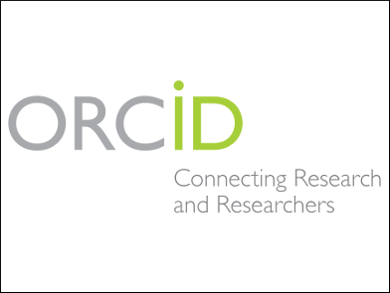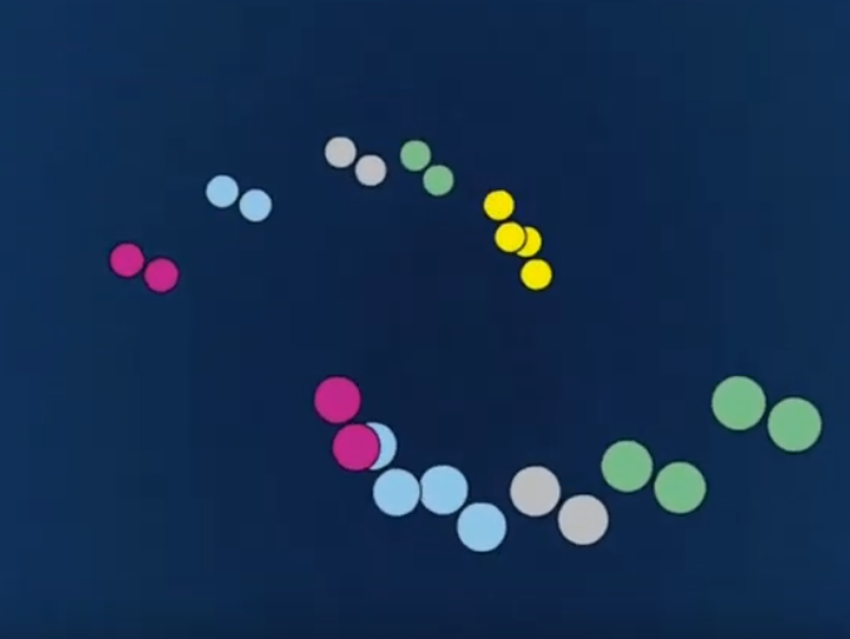It’s almost exactly a year since I was interviewed about ORCID for ChemViews Magazine and a lot has happened in our organization since then, so I’m delighted to have been invited back to update you.
Be Uniquely Identified with Your Research
As you probably already know, ORCID provides you with a unique digital identifier that reliably and clearly connects you with your affiliations and contributions. An ORCID iD is for your entire career! No matter where you go, what your fields of research, or how many versions of your name you use professionally, your ORCID iD is your lifelong digital name.
Control of your own ORCID record is one of our core principles – you register for your iD, decide what information to connect to it, which organizations to provide access to update your record, and what information to make publicly available, share with trusted parties, or keep completely private.
Our vision is a world where all who participate in research, scholarship, and innovation are uniquely identified and connected to their contributions and affiliations across borders, disciplines, and time. Important things to note here are that ORCID is not just for authors, and not just for those working in academia, but for everyone who is contributing in any way to any form of research in any setting. You can use your iD in over 250 systems – grant applications, manuscript submissions, your institutional repository, and more. Recently introduced features like auto-update and institutional sign-in are making it easier than ever to use your iD and to ensure that data you’ve validated flows smoothly between these systems.
What’s New?
Community Engagement
So, what has changed since 2015? For one thing, we’ve grown. A year ago we had 1.6 million registrants and just over 300 members, who were using ORCId iDs in 145 systems. Today we have over 2.6 million registrants, and nearly 600 members using ORCID in over 250 systems. What’s more, there are now close to 16 million works activities (articles and other contributions) associated with nearly 7 million unique DOIs, linked to ORCID identifiers.
We are also growing in terms of our outreach and engagement with the scholarly and research community. In 2015, we ran a total of seven workshops; in 2016 we’ve held eleven already, with several more planned for October and November in Indonesia, Germany, the United Arab Emirates, and Portugal – see our events page for more details or contact community @orcid.org. And, of course, we engage heavily with our community via social media (Twitter, LinkedIn, and Facebook and our support team.
Survey
Getting to know our community even better is really important to ORCID, so last year we carried out our first ever community survey, which garnered close to 6,000 responses – mostly from researchers. A summary of the results and the full data are available on figshare. Some key findings included:
- Strong awareness that ORCID iDs are free for researchers; this was also the number one reason given for registering
- Respondents were most likely to have learned about ORCID from colleagues or their publishers
- More than half had used their iD during the publication process
- Over 90 % expected to be able to connect their ORCID iD with journal articles – the most popular use of ORCID iDs at present.
- 72 % agreed or strongly agreed that requiring ORCID would benefit the research community (21 % were neutral, with only 7 % disagreeing or disagreeing strongly)
We were especially interested to learn that so many respondents supported the idea of their organizations requiring ORCID iDs. Support for publishers requiring ORCID was especially high (75 %) and, since then, a number of publishers have committed to requiring ORCID iDs for at least the corresponding author of accepted manuscripts. Feedback from researchers has been almost universally positive so far.
New Features
Our development team has also been busy. The launch of auto-update by CrossRef last October, and DataCite earlier this year was an important step in achieving our mantra of “enter once, re-use often”. Now, when you publish an article, dataset, or other work, and connect it to your iD during the publication process, you can opt to allow CrossRef or DataCite to automatically update your ORCID record with the DOI for that work on publication. You only need to authorize each organization once and they will then update your record every time you publish a work using your ORCID iD, irrespective of the publisher. We strongly encourage you to grant this permission as it saves you time, eliminates errors, and creates a trusted connection between you and your published articles and datasets.
Another new feature, mentioned in my last post, and now up and running for several organizations, is the option to connect peer review activities to your ORCID record. Among the early adopters of this functionality is Publons, who many publishers such as Wiley are partnering with to enable researchers to keep track of – and get recognition for – peer review.
More recently, we have introduced new ways to sign into your ORCID account using your institutional sign-in (for institutions using eduGAIN) or your Facebook/Google sign-in. This is in addition to the single sign-in option using ORCID already offered by some manuscript submission platforms. Institutional sign-in is proving very popular, with about 5,000 researchers from a quarter of all eduGAIN institutions using it in the first four months since launch.
Future Plans
Future plans include launching a series of ORCID videos to help guide you through why and how to use some of our key functions, starting with adding works using Search & Link wizards, grouping works, and adding a trusted individual. We are also making improvements to our website by updating the content, navigation, and design to make it more accessible.
And there’s lots more on the horizon, so remember to follow us on Twitter (@ORCID_Org) and sign up for the ORCID blog to keep up with all our news.
Alice Meadows started her career at Blackwell, Oxford, UK, as a Journals Marketer. In 2007, on Wiley’s acquisition of Blackwell, Alice was appointed Director of Central Marketing Services, and in 2010 Society Relations Director. In 2013, she became Director of Communications for Global Research, John Wiley and Sons, Inc., Boston, USA. In 2015, Alice Meadows became Director of Communications for ORCID, Inc., Bethesda, MD, USA, and currently is Director of Community Engagement and Support..
Also of Interest
- ORCID – Unique Author Identifier,
Alice Meadows, Vera Koester,
ChemViews Mag. 2015.
DOI: 10.1002/chemv.201500088
Alice Meadows, Communications Director ORCID, about the value of ORCID for researchers and organizations




